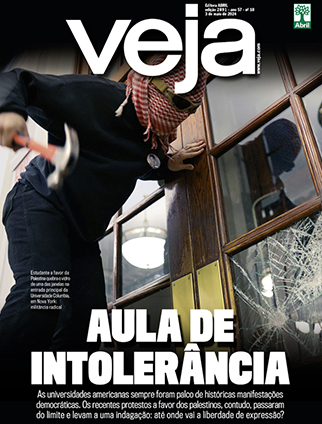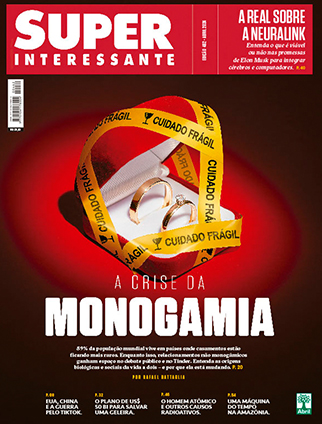The Star Miskicks the Ball
The Federal Public Prosecutor´s Office has accused the striker and his father, who is also his agent, of tax evasion and misrepresentation, crimes that are punishable by up to five years in prison. This is the latest move in a game that is threatening the brightest star of Brazilian football in the last decade off the field and casting light on the shady side of the world´s most popular sport
At the age of 23, Neymar is at the height of his career. Three weeks ago, he was included among the three best players in the world for the first time, a feat no Brazilian player has achieved in the last eight years. Over the last six months, he has spearheaded Barcelona´s attack, helping the team win the Spanish League, King´s Cup, Champions League and the Club World Cup. He is the fifth top goal scorer in the history of the Brazilian national team with 46 goals. All this has occurred on the field. Off the field, he has been notching up one defeat after another. In Spain, he is the target of two court cases, one civil and the other criminal, accused of corruption and larceny in an investigation that is trying to find out if he has made contracts just as a front to hide part of the money he received when he moved from Santos to Barcelona.
Spanish tax authorities estimate that Neymar has not paid 9 million euros (R$ 45 million, at the current exchange rate) in tax. He is set to testify on the criminal accusations before the Spanish legal authorities this week. Problems are also pursuing him in Brazil. In September, the legal authorities froze R$ 188 million belonging to him, equivalent to a fine the Federal Revenue had imposed for tax evasion between 2011 and 2013, in contracts with Santos, advertising deals with companies and the transaction that took him to Spain. However, the hardest blow against Brazilian football´s biggest star came last week. The Federal Public Prosecutor´s Office accused Neymar and his father and business agent, Neymar Santos, of fraudulent misrepresentation and tax evasion. The former president of Barcelona, Sandro Rosell, and the current president, Josep Maria Bartolomeu, were also accused along with them. The penalty for these two crimes could amount to five years in prison.
According to the confidential accusation made by prosecutor Thiago Nobre Lacerda last Wednesday, to which VEJA has exclusively access, Neymar senior and his son created front companies and adulterated documents in order to pay less tax. The mechanism used is simple: to avoid paying 27.5% in income tax as a private individual, Neymar and his father created companies to receive most of his salary from Santos and the advertising contracts, thereby paying a lower tax rate. This came to a reduction of more than 50% in the tax bill. They opened three companies over eight years: Neymar Sport e Marketing, N&N Consultoria Esportiva and N&N Administração de Bens. However the prosecutor says that none of these companies had the “economic-financial, managerial or operational ability” to manage Neymar´s career. The partners were his father and mother and there were only two employees, who worked as security guards. From 2010 to 2013, Neymar received R$ 43.77 million from Santos but only R$ 8.1 million was his salary and paid to him as an individual. The rest was paid through “image contracts”, signed with his companies. In 2011 alone, Neymar´s companies also signed at least 11 contracts amounting to almost R$ 70 million with sponsors. The prosecutor, who has been working with the Federal Revenue, said, “It is very clear that Neymar and his father set up companies with the single aim of using them to receive the money from the contracts and, therefore, pay less tax”.
The case of Neymar is drawing most attention, whether because of the amounts involved or because it involves the most brilliant Brazilian footballer of the last decade, but it is far from being unique. Investigations have become more focused in recent years but this kind of arrangement has always existed. The Federal Revenue and the Public Prosecutor´s Office linked up in a joint effort in Neymar´s case. For the defense, the tax lawyers claim it is a legitimate practice.
Another 88 players were fined by the Federal Revenue between 2012 and 2015. Kleber Cabral, the vice-president of the National Association of Federal Tax Auditors of Brazil, said, “In these cases we believe the image right was used to replace the player´s salary. As a result, both the player and the club pay less tax. However, the fact is that the relationship in terms of employment is concealed as being a provision of services”.
Tax specialists who do not agree with the Federal Revenue´s interpretation claim that the main problem is its strict approach to analyzing the law. Felipe Dutra, a professor at the Ibmec business school, says, “The main question is: does it make sense for the company to exist or not? If the player has never used his image off the pitch, the answer is no. But Neymar is a brand, with advertising contracts, that brings income to the club. He can reasonably claim that he needs a business structure to improve the management of his brand”. An obstacle to this interpretation is the fact that the companies in question have no structure. Lawyer Felipe Ferreira Silva, author of the book “Tributação no Futebol: Clubes e Atletas (Taxation in Football: Clubs and Players) says, “With no employees or a head office, there is no way of proving the business purpose of the company. It is common today, including in other countries, for the tax authorities to impose penalties and taxes when companies are created with the single aim of reducing or not paying taxes”.
That is why other star players line up alongside Neymar in facing problems with the law. They could easily play in the world´s best national teams. In goal is the former Real Madrid keeper Iker Casillas, now with Porto, who made an agreement with the Spanish tax authorities in 2014 and paid 2 million euros for “discrepancy in the interpretation of the regulations”. The mid-field is formed by Xabi Alonso, of Bayern Munich, who was investigated for tax crimes for using foreign-based companies to receive image rights when he played for Real Madrid between 2010 and 2012. Beside him is Javier Mascherano, Barcelona´s Argentinean midfielder who was condemned the week before last to a year in prison and fined 815,000 euros for evading tax payments of 1.5 million euros between 2011 and 2012. In the attack, alongside Neymar, is the Argentinean, Lionel Messi, accused with his father, of tax fraud amounting to 4.16 million euros between 2007 and 2009. In the case that begins in May, the Public Prosecutor´s Office will ask for a penalty of 22 months in prison, along with a fine on the amount due.
Neymar´s problems are not limited to the Federal Revenue´s interpretation. He has also been accused by the Federal Public Prosecutor´s Office of falsifying documents to pay less tax. The accusation claimed that, in at least 15 cases, the contracts of Neymar´s companies with Santos and sponsors were made before these companies were even created. The accusation is that Neymar and his father signed a contract between their company and the other parties, even before the company was registered in the Commercial Registry and had a corporate tax number. When these documents were obtained later, Neymar and his father inserted the company data in the contracts. One example occurred on May 10, 2006, when one of the companies, Neymar Sport, signed a contract with Santos for the exploitation of his image right in which his corporate tax number was already included. The problem is that this number did not even exist on that date and was only issued 12 days later, on May 22. The prosecutor concluded his claim by saying, “This is a predated document and the legal business was simulated”.
One of the great shots of the investigation is the part that deals with the sale of Neymar to Barcelona, a deal that was announced as amounting to 57 million euros but actually came to around 90 million euros. The investigation reconstructed the deal step by step. On December 6, 2011 — when Neymar was still under contract to Santos until August 2015 and Barcelona had been banned by Fifa from contracting players aged below 18 – Barcelona made a contract with one of his companies, N& N Consultoria, to grant a “loan” of 10 million euros. At that time N & N did not have a single employee or a cent of capital stock. A few days later, the then president of Santos wrote a letter in which he reduced the length of Neymar´s contract to July 2014 when he became a “free agent”, i.e. he no longer needed to pay Santos or the owners of his transfer pass anything. By coincidence, this was the same date on which he agreed to be transferred to Barcelona. The money was released, without any warranty or guarantee, on February 15 of the following year. However, not only has this money never really been paid but N & N also received another 30 million euros as an “indemnity”, through another contract, in October 2013. The Public Prosecutor´s office claims that no loan or indemnity was ever paid but that this was a “mere simulation” to hide the advance payment Barcelona had paid to the player to ensure he would be transferred three years later. When Neymar´s father was heard by the prosecutor, he showed an honesty that has not been seen in football since the days when players gave interviews without media training to repeat the old clichés such as “the team is united” and “our main aim is to leave here with three points”. Neymar´s father said, “You know what Barcelona is doing now? Barcelona spent two years in which it could not hire players (as it was punished by Fifa for buying and selling players who were younger than 18). Do you know whose way of tackling this situation they are studying? Ours”. He continued, “All you need to do is not register then you don´t have any problem. I don´t register but I can sign a contract and carry it out later on.” The final touch follows: “Do you want this boy? Not now? I will deliver him in two years´ time. Just pay 10 million up front. Call it a loan and that makes it legal”. The game was heading for a cracking goal but this move could be transformed into the biggest miskick in Neymar´s career. Who knows, it might also help clean up one of the last fields where corruption still runs free, the pitches.


 SEGUIR
SEGUIR
 SEGUINDO
SEGUINDO

 Shopping se manifesta sobre ‘calote’ de Taís Araújo
Shopping se manifesta sobre ‘calote’ de Taís Araújo Ivanir dos Santos entra com representação contra Ludmilla: ‘É crime’
Ivanir dos Santos entra com representação contra Ludmilla: ‘É crime’ A mais longa das noites: países árabes cooperaram com Israel contra Irã
A mais longa das noites: países árabes cooperaram com Israel contra Irã A morte que vai abalar ‘Renascer’ – e as diferenças para a versão original
A morte que vai abalar ‘Renascer’ – e as diferenças para a versão original Dívida de Taís Araújo em condomínio vira caso de Justiça
Dívida de Taís Araújo em condomínio vira caso de Justiça







